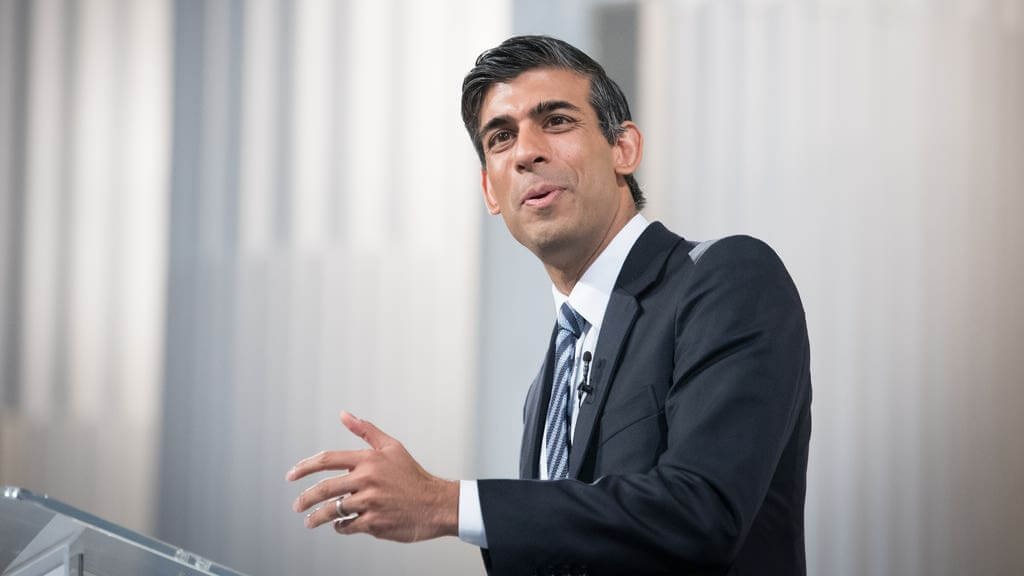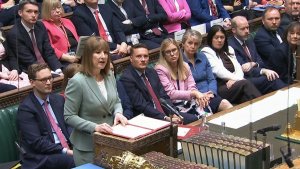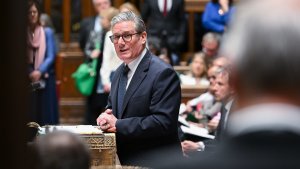The OBR said the extra funding pressures for the health service alone could total around £7 billion a year.
Chancellor Must Find Extra £10bn A Year To Cover Covid Legacy Costs – OBR
The OBR said the extra funding pressures for the health service alone could total around £7 billion a year.

The Chancellor will need to stump up an extra £10 billion a year to fund a spending black hole on key public services caused by the pandemic, the UK’s fiscal watchdog has warned.
The Office for Budget Responsibility (OBR) said the Government faces “unfunded legacy costs of the pandemic” across areas including health, education and transport over the next three years, which pose a material risk to the public spending outlook.
In its latest fiscal risks report, the OBR said the extra funding pressures for the health service alone could total around £7 billion a year as test and trace and the ongoing vaccination programmes prove costly.
Other spending pressures not yet addressed by Chancellor Rishi Sunak include another £1.25 billion a year for pupils to catch up on education lost during lockdowns, as well as around an extra £2 billion a year to fill the fares gap left by fewer passengers using public transport.
What about the lasting impact on the economy?
Evidence on the degree of economic scarring has been mixed and some forecasters have raised their medium-term growth estimates, but most fall within a fairly narrow range. We’ll revisit our assumptions at the Autumn Budget. pic.twitter.com/tCXBH2TImT
— Office for Budget Responsibility (@OBR_UK) July 6, 2021
The spending alert came as the OBR warned that Britain faces three large and “potentially catastrophic” risks from the pandemic, climate change and a ballooning debt mountain.
It said the UK faces the triple threats as it emerges from the “largest peacetime economic and fiscal shock in three centuries”.
While the OBR did not update its economic or borrowing forecasts in the report, it said the economy had proved “surprisingly adaptable and resilient” to the pandemic.
Having plunged by 10% in 2020 – one of the deepest recessions of the advanced economies – it has since begun recovering at a blistering pace, helped by nearly £400 billion of Government support and measures.
The OBR expects Britain’s economy to recover to pre-pandemic levels by the middle of next year – just over two years after the crisis struck, compared with the four-and-a-half years it took to rebound following the financial crisis.
But it reiterated that the economy is likely to suffer a 3% permanent hit from the pandemic and said the current rebound is unlikely to be maintained at the rate.
OBR member and former Bank of England deputy governor Sir Charlie Bean said: “We expect the economy to moderate from here and that we won’t see the rapid growth rates we have seen in the past as the regulations were relaxed being repeated in the future.”
The OBR cautioned that rising inflation and potential interest rate hikes could put the UK’s debt mountain – standing at more than £2 trillion – under yet more pressure.
What risks does #climatechange pose for government finances? 🌍
OBR Economists Rachel and Tom explain some of the risks we’ve considered in chapter 3 of our 2021 #OBRfiscalrisks report 📗
Read more: https://t.co/Lg08Z0CJIU pic.twitter.com/mnZGyac5HQ
— Office for Budget Responsibility (@OBR_UK) July 6, 2021
It said it was not yet clear if the current soaring levels of inflation would be temporary, as the Bank of England expects, or whether there are more persistent underlying cost pressures that could prompt interest rates to rise.
Inflation and rising wage costs could also see the Government face a £3 billion bill from its so-called triple lock state pension pledge, the OBR calculated.
On climate change, the watchdog cautioned that delayed action could lead to a 3% additional impact on gross domestic product (GDP) and debt would be 23% of GDP higher than if early action is taken by 2050-51.
But the OBR said its baseline scenario of early action to achieve net zero would see the impact on the UK’s debt mountain be less severe than that of the coronavirus crisis, adding 21% – or £469 billion – of GDP to net debt by 2050-51.
In a stark warning over the fiscal threat posed by climate change, it said if there was no action at all to reduce emissions, UK debt would rocket to reach 289% of GDP by the end of the century.
Thanks for signing up to Minutehack alerts.
Brilliant editorials heading your way soon.
Okay, Thanks!

